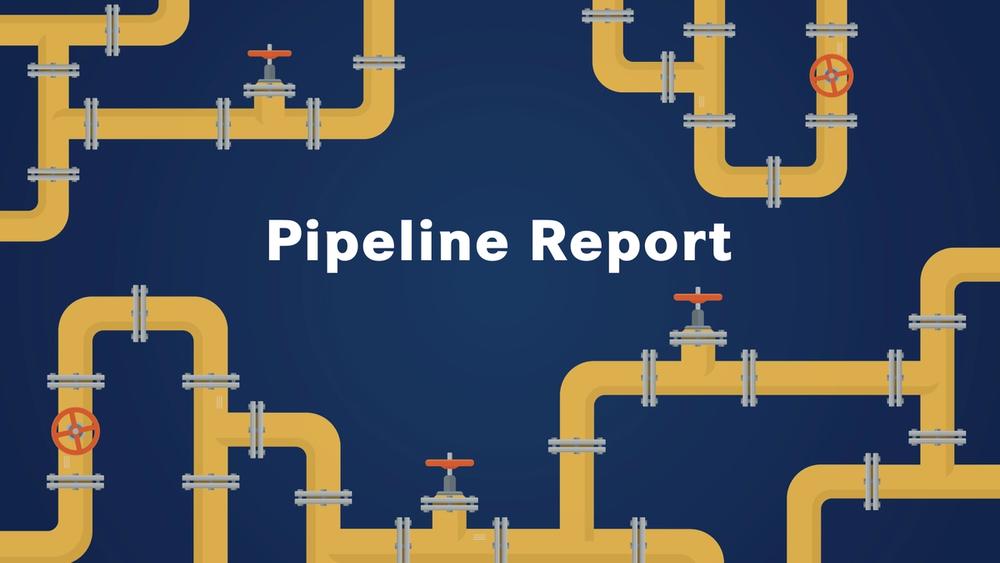
FDA Grants Orphan Drug Status to SY-5609 for Pancreatic Cancer

The FDA has granted an orphan drug designation to the CDK7 inhibitor SY-5609 for use as a potential therapeutic option in patients with relapsed metastatic pancreatic cancer.
The FDA has granted an orphan drug designation to the CDK7 inhibitor SY-5609 for use as a potential therapeutic option in patients with relapsed metastatic pancreatic cancer, according to an announcement from Syros Pharmaceuticals, Inc.1
SY-5609 has been shown to hinder cancer growth in pancreatic ductal adenocarcinoma (PDAC) xenograft models; for many cases, the agent was found to result in regressions.2 The agent has also been found to potentiate the activity of gemcitabine in PDAC cells in vitro as well as in xenografts in vivo. In PDAC preclinical models, SY-5609 has also been found to potentiate paclitaxel activity.
Now, the agent is under exploration in combination with chemotherapy in patients with pancreatic cancer who experienced disease progression after having received FOLFIRINOX, as part of an ongoing phase 1 trial (NCT04247126).3
“The orphan drug designation underscores the urgency of our efforts to develop SY-5609 for patients with pancreatic cancer, one of the most devastating and difficult-to-treat malignancies,” David A. Roth, MD, chief medical officer of Syros Pharmaceutics, Inc., stated in a press release.
The multicenter, open-label, dose-escalation study enrolled patients with advanced breast, colorectal, lung, ovarian, and pancreatic cancers, as well as those with solid tumors that harbored Rb pathway alterations irrespective of histology.4
In the dose-escalation portion of the research, SY-5609 was given as a monotherapy in patients with select advanced solid tumors and in combination with fulvestrant (Faslodex) in those with hormone receptor–positive, HER2-negative breast cancer. Those who received treatment were given continuous daily dosing and intermittent dosing regimens, which included a 7-days-on/7-days-off schedule, as well as 5-days-on/2-days-off schedule.2
A total of 54 patients received treatment with SY-5609 monotherapy as of July 6, 2021. All these patients were eligible for evaluation in the safety analysis and 45 were evaluable for efficacy. The median age of patients was 65.5 years; they were noted to be heavily pretreated, having received a median of 4—but up to 8—prior therapies.2
Data showed that 28.9% of evaluable patients achieved stable disease (SD). In 6 of these patients, tumor regressions of up to 20% were observed. Notably, the most clinical activity with the agent was derived by heavily pretreated patients with pancreatic cancer (n = 13). Specifically, 38.5% of these patients had SD and 2 of them experienced tumor reductions.2
Of the 4 patients with pancreatic cancer who had serial CA 19-9 data available, 3 were found to experience reductions in this marker, and these reductions ranged from 32% to 72%. One patient who had metastatic pancreatic cancer who had progressed on 2 previous lines of treatment and had relapsed following a third line of treatment was found to have prolonged SD with SY-5609 of up to 12 months.2
Across all the doses and schedules examined, most toxicities were found to be low grade and reversible. Nausea, diarrhea, thrombocytopenia, fatigue, and anemia were the most common treatment-emergent adverse effects (TEAEs). Notably, there was a low rate of treatment discontinuations because of AEs.2
It was noted that the 7-day-on/7-day-off schedule resulted in optimal tolerability in that those who received the agent on this schedule experienced the lowest rate of TEAEs. These patients still experienced similar rates of SD vs those who had received regimens with a higher dose intensity. As such, this schedule has been selected for further exploration.2
“Based on the early data we reported last year, which demonstrated single-agent activity in heavily pretreated patients, as well as compelling preclinical data and a strong mechanistic rationale, we believe SY-5609 could deliver meaningful benefit to people with pancreatic cancer, whose tumors have otherwise eluded therapeutic intervention,” Roth added in the press release.
In the dose-expansion portion, the agent will be examined in those with confirmed, metastatic PDAC with at least 1 measurable lesion per RECIST v1.1 criteria and an ECOG performance status of 0 or 1. Patients with central nervous system metastases or who have previously received CDK7, CDK9, and pan-CDK inhibitors will be excluded.4
One group will be comprised of second- or third-line patients who experienced disease progression after FOLFIRINOX or modified (m) FOLFIRINOX. This group will receive SY-5609 at a starting dose of 4 mg on a 7-days-on/7-days-off schedule plus biweekly gemcitabine at 1000 mg/m2. The other group will include second-line patients who progressed after FOLFIRINOX or mFOLFIRINOX. These patients will receive SY-5609 on a 7-days-on/7-days-off schedule plus biweekly gemcitabine plus nab-paclitaxel.4
The primary end points of the safety lead-ins are safety and tolerability, and the key secondary end points include disease control rate (DCR) and progression-free survival (PFS). For the expansion phases, which will include approximately 25 patients in each group, the primary end point is PFS, and the secondary endpoints are DCR, safety, and tolerability.4
“We look forward to sharing initial data from the safety lead-in portion of our ongoing phase 1 study later this year.” Data from the safety lead-in portion of the trial are expected in the second half of 2022.
References
- Syros receives FDA orphan drug designation for SY-5609 for the treatment of pancreatic cancer. News release. Syros Pharmaceuticals, Inc. September 13, 2022. Accessed September 15, 2022.
https://bit.ly/3S74aoc - Sharma M, Bashir B, Juric D, et al. Trial in progress: phase I study of SY-5609, a potent, selective CDK7 inhibitor, with initial expansion in adults with metastatic pancreatic cancer. J Clin Oncol. 2022;40(suppl 16):TPS4180. doi:10.1200/JCO.2022.40.16_suppl.TPS4180
- A study of SY 5609, a selective CDK7 inhibitor, in advanced solid tumors. ClinicalTrials.gov. Updated September 14, 2022. Accessed September 15, 2022.
https://clinicaltrials.gov/ct2/show/NCT04247126 - Syros presents new data from phase 1 trial of SY-5609 and details three-pronged combination strategy to advance SY-5609 in solid tumors and blood cancer. News release. Syros Pharmaceuticals, Inc. September 20, 2021. Accessed September 15, 2022.
https://bit.ly/3QO1SJB






































